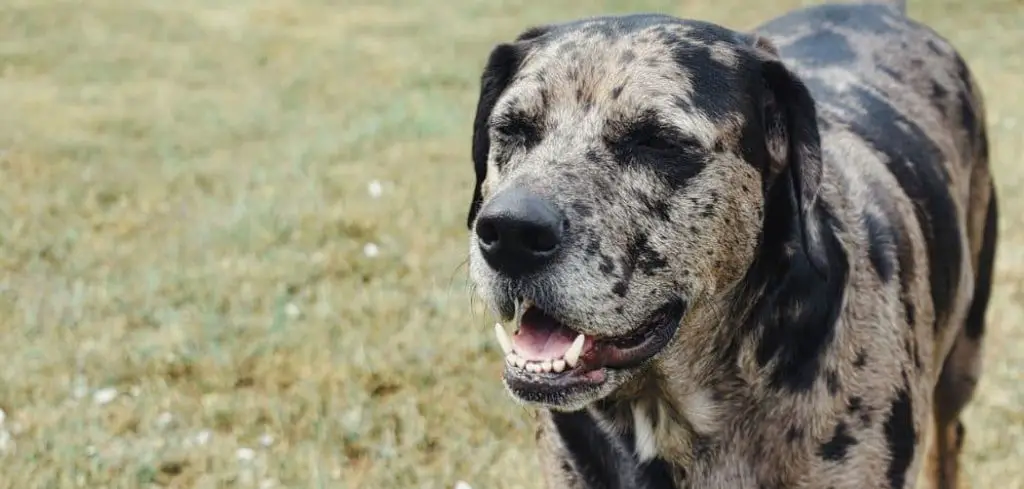When your dog is panting heavily and seems unusually restless, it can signal that something is wrong—physically, emotionally, or both. These behaviors are often early indicators of discomfort, anxiety, or internal imbalance.
We outline the common causes of dog panting and restless, what you can do at home, and when to seek veterinary help.
Table of Contents
Dog Panting and Restless — Why It Happens
Dogs pant and act restless due to pain, anxiety, overheating, digestive distress, or underlying medical issues. These symptoms often occur together because panting helps regulate body temperature and express stress, while restlessness shows discomfort or an inability to settle.

Common Causes of Dog Panting and Restless
Pain or Discomfort
Pain is one of the most common reasons for a dog to pant and be unable to settle down.
This could be due to arthritis, an injury, dental problems, or even internal inflammation.
Watch for limping, stiffness, whining, or resistance to touch.
Pain management through veterinary treatment can restore calm and comfort.
Anxiety or Emotional Distress
Separation anxiety, fear of loud noises, or situational stress can trigger intense panting and pacing.
Dogs may also hide, yawn excessively, lick their lips, or bark unpredictably.
These behaviors are their way of releasing nervous energy.
Behavior modification, calming aids, and medications may be needed for long-term relief.
Read more: Dog Panting and Shaking (Common causes)
Overheating or Heat Exhaustion
Dogs pant to cool themselves—and if it’s hot or humid, they may become restless from the discomfort.
Heavy panting in combination with rapid breathing, drooling, or seeking cool surfaces could be a sign of heat stress.
Move them to a cooler environment and provide fresh water. Severe overheating requires immediate veterinary attention.
Gastrointestinal Upset
Dogs with an upset stomach may pant and pace due to nausea, gas, or abdominal pain.
These symptoms may occur before vomiting, diarrhea, or appetite loss.
Dogs might also stretch their abdomen, lick their lips, or seem reluctant to lie down.
Mild digestive issues can resolve with rest and bland food, but recurring symptoms need vet care.
Hormonal or Metabolic Imbalances
Conditions like Cushing’s disease, diabetes, or thyroid problems can cause increased panting, agitation, and nighttime restlessness.
You might also notice increased thirst, urination, or changes in appetite and coat condition.
These conditions require bloodwork and professional treatment to manage long-term.
What to Do If Your Dog Is Panting and Restless
Create a calm, cool space with minimal stimulation to help your dog settle.
Avoid exercise or excitement until you determine what’s causing the symptoms.
Offer water and observe for any additional signs like vomiting, limping, or trembling.
Try gentle reassurance or a familiar routine to reduce anxiety-based restlessness.
If symptoms persist or intensify, contact your vet promptly.
When to Call or Visit Your Vet
Seek veterinary help if your dog:
Pants excessively for more than 30–60 minutes
Is restless throughout the day or night
Shows signs of pain, nausea, or confusion
Has additional symptoms like vomiting, diarrhea, or limping
Is older or has known medical conditions
These signs could point to a serious underlying issue that requires medical evaluation.
Key Takeaway
When your dog is panting and restless, it’s more than just being hot or nervous.
It could be a sign of pain, anxiety, overheating, or illness.
Watch closely, offer comfort, and don’t hesitate to involve your vet—early action can bring fast relief and peace of mind.
